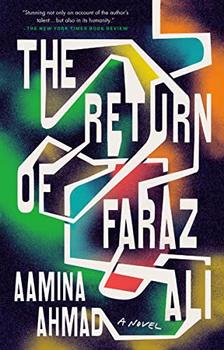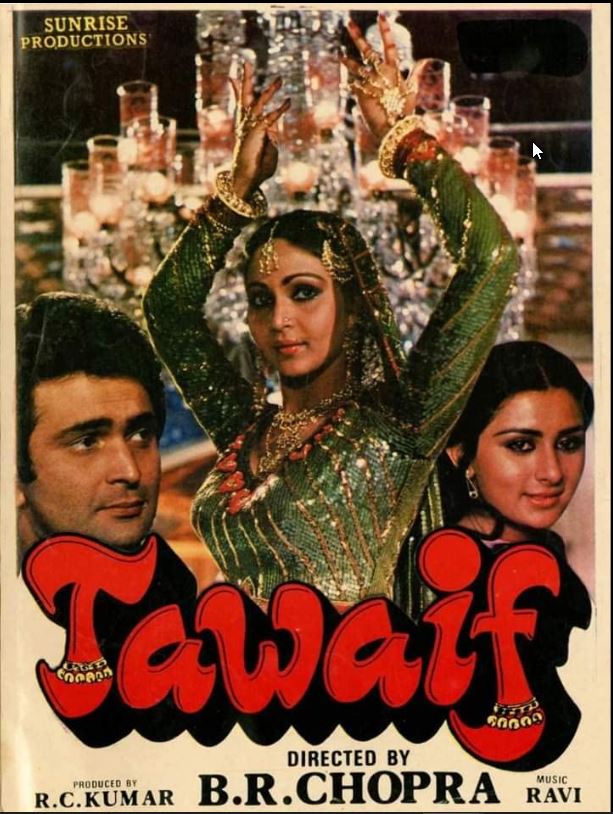Summary | Excerpt | Reading Guide | Reviews | Beyond the Book | Read-Alikes | Genres & Themes | Author Bio

A Novel
by Aamina AhmadThis article relates to The Return of Faraz Ali
 Aamina Ahmad's debut novel, The Return of Faraz Ali, takes place in 1968 in Lahore's red-light district, and several of the characters are tawaifs — sex workers.
Aamina Ahmad's debut novel, The Return of Faraz Ali, takes place in 1968 in Lahore's red-light district, and several of the characters are tawaifs — sex workers.
"Tawaif" comes from the Urdu word "tauf," which means to go round and round. While the term is considered derogatory now, originally it was one of respect for a highly-skilled courtesan in what was then North India. These women were well-regarded and generally moved in the highest circles, including the royal court. They were entertainers proficient in music and dancing, valued for their ability to socialize with the elite men of the time. They had wealth, power and prestige, and were considered the last word in etiquette; having a tawaif attend one's celebration was a status symbol.
Tawaif was a hereditary profession, and girls were trained for it from an early age — typically by their mothers. They would begin their studies in music and dance as early as age five and would be performing publicly by 10 or 12. In their early teens, those with talent and beauty would be attached to a wealthy sponsor, who'd generally look after the girl's entire family. She was treated like her patron's widow if he predeceased her.
The height of their popularity seems to have come in the late 16th century, when the Mughals sought to consolidate their control of North India and had their capital in the walled city of Lahore (known today as Lahore's Old City). This included a residential neighborhood outside the main fort called Shahi Mohalla ("Royal Neighborhood"). It is here that many tawaifs established kothas — a sort of salon where they'd entertain the high-ranking men of the area.
Lahore came under attack many times over the ensuing decades, and eventually, most of the tawaifs relocated to other towns. In 1799, however, Sikh ruler Ranjit Singh captured Lahore and reestablished the royal customs instituted by the Mughals, including bringing tawaifs back to court. In 1802, Ranjit Singh even fell in love with and married a tawaif named Moran, which spurred some controversy. After his death in 1839, his successor, Hira Singh Dogra, built a market in the neighborhood and renamed it "Heera Mandi," or "Market of Hira Singh." "Heera" also means "diamond," and some believe this was a reference to the tawaifs of the area who were said to be as beautiful as the gem.
The Sikh Empire came to an end after two wars with British troops (1845-1849), after which the area was controlled by the British East India Company, which had established a massive trading venture there. The tawaifs lost their royal patronages as a result. Shahi Mohalla retained its reputation as a center for the performing arts, although the patrons were now wealthy British administrators and soldiers rather than Indian royalty. While no longer esteemed as they once were, the tawaifs generally continued to enjoy a high standard of living.
All this changed during the Sepoy Mutiny of 1857, when Indian rebels fought against the British East India Company. The tawaifs played an important role behind the scenes, providing shelter and opening their kothas as meeting places. Some were more active — a courtesan from Lucknow named Azeezunbai was said to have met the British armed with pistols. After successfully putting down the rebellion, the British retaliated by confiscating the women's property and destroying their kothas.
In addition, as the British strengthened their control of India, they brought their wives, who in turn brought their Victorian values. Female chastity and domesticity were the ideals, and tawaifs, as public performers, became equated with prostitution. The kothas were no longer seen as havens for art, music and conversation, but mere brothels. Christian missionaries launched a movement to punish the tawaifs, enforcing strict regulation on what they could and couldn't do. This had a dampening effect on business and public opinion, and with few options available to them, most turned to prostitution to survive.
The fortunes of the tawaifs did not improve after British rule was terminated in 1947, and today most live in poverty, barely scraping by. They did, however, become a heavily romanticized subject of many Bollywood movies and Pakistani dramas beginning in the 1950s. They're typically portrayed as either highly sexualized vamps or prostitutes with a heart of gold, their characters "doomed to stay unmarried, and invariably achiev[ing] redemption only through death," according to The Hindu.
Movie poster for Bollywood film Tawaif (1985), courtesy of IMDB
Filed under People, Eras & Events
![]() This "beyond the book article" relates to The Return of Faraz Ali. It originally ran in May 2022 and has been updated for the
April 2023 paperback edition.
Go to magazine.
This "beyond the book article" relates to The Return of Faraz Ali. It originally ran in May 2022 and has been updated for the
April 2023 paperback edition.
Go to magazine.




It was one of the worst speeches I ever heard ... when a simple apology was all that was required.
Click Here to find out who said this, as well as discovering other famous literary quotes!
Your guide toexceptional books
BookBrowse seeks out and recommends the best in contemporary fiction and nonfiction—books that not only engage and entertain but also deepen our understanding of ourselves and the world around us.